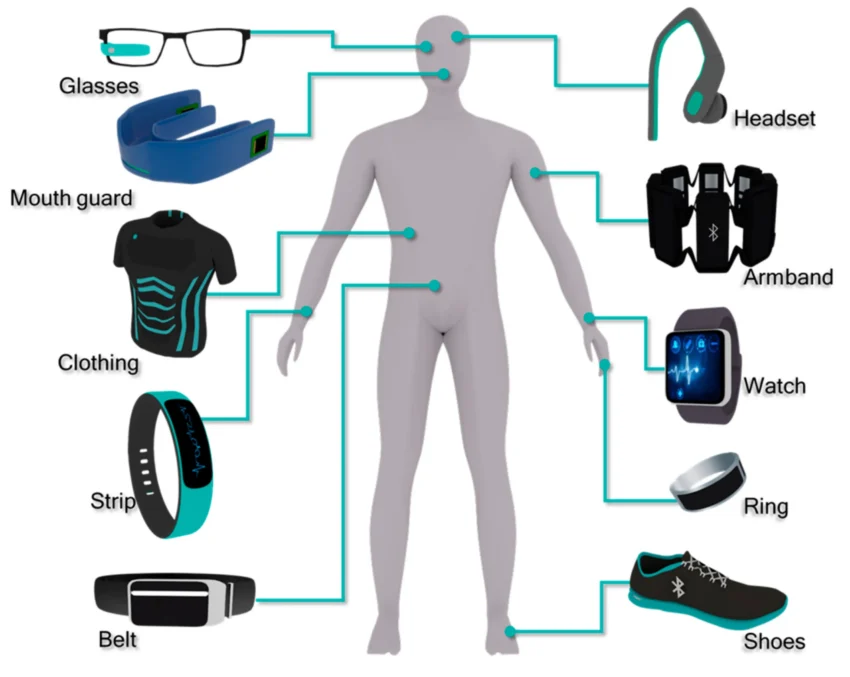Wearable health tech is revolutionizing the way we monitor our well-being, offering innovative solutions that fit seamlessly into our daily routines. From smart rings to advanced fitness trackers, these health monitoring devices empower users to gain valuable insights into their physical and mental health. Leading brands like Apple, Samsung, and Oura are at the forefront of this movement, providing tools that not only track activity but also promote a more proactive approach to health management. As technology continues to evolve, wearable technology is becoming increasingly sophisticated, with features that can predict health issues before they arise. With the rapid growth of the wearable health tech market, it’s clear that these devices are more than just accessories; they are integral to our health journeys.
The landscape of personal health monitoring is rapidly changing, thanks to the emergence of advanced biometric devices that fit snugly into our lives. Known as health wearables, these gadgets, including smart rings and fitness trackers, are designed to provide real-time data on various health metrics. As consumers become more health-conscious, the demand for these innovative solutions is skyrocketing, with companies like Oura leading the charge. The shift from traditional healthcare methods to technology-driven solutions signifies a transformative era in health management, where individuals are empowered to take charge of their wellness. By leveraging these cutting-edge health monitoring devices, users can gain deeper insights into their health and make informed decisions.
The Evolution of Wearable Health Tech
The evolution of wearable health tech has been remarkable, transforming from simple devices like the original Fitbit to sophisticated gadgets that provide real-time health monitoring. In the early days, fitness trackers primarily focused on counting steps and tracking calories, which attracted fitness enthusiasts aiming to improve their physical activity levels. However, as technology has advanced, so has the functionality of these devices, leading to the creation of smartwatches and health monitoring devices that offer a comprehensive view of an individual’s health status.
Today, wearable technology encompasses smart rings and advanced fitness trackers that not only measure basic metrics but also monitor heart rates, sleep patterns, and stress levels. Devices like the Oura Ring exemplify this shift by providing insights into users’ health without the need for a screen, making them more discreet and user-friendly. This evolution signifies a growing trend towards integrating health tech into daily life, allowing users to make informed health decisions based on personalized data.
Wearable Health Tech: A New Era of Health Monitoring
Wearable health tech is ushering in a new era of health monitoring that prioritizes user engagement and proactive health management. Companies like Samsung have taken significant strides in this direction, developing comprehensive health platforms that not only track current health metrics but also provide personalized coaching and insights. By integrating features that allow users to connect with healthcare providers, these devices bridge the gap between technology and traditional healthcare, fostering a more collaborative approach to health management.
As wearable technology continues to evolve, the integration of advanced health monitoring features is becoming commonplace. The introduction of smart rings, such as those produced by Oura, offers users a unique way to monitor their health without the bulkiness of traditional smartwatches. This innovation allows for continuous health tracking in a discreet manner, ultimately empowering individuals to take charge of their health journeys. Moreover, as partnerships between tech companies and healthcare providers become more prevalent, the potential for personalized healthcare solutions is set to expand further.
The Impact of Smart Rings on Health Tracking
Smart rings have emerged as a game-changer in the wearable technology market, offering a compact and stylish alternative to traditional fitness trackers and smartwatches. Devices like the Oura Ring are capable of monitoring a variety of health metrics, including sleep quality, heart rate, and activity levels, all while boasting an impressive battery life. This makes them particularly appealing for users who seek convenience without compromising on functionality.
The impact of smart rings on health tracking is profound, as they encourage users to maintain a more consistent awareness of their health. With features designed to provide actionable insights, users can better manage their wellness and make informed decisions based on their data. Furthermore, the ability to share health information with medical professionals opens up new avenues for receiving timely care and interventions, making smart rings an essential tool in modern health management.
Advancements in Health Monitoring Devices
The advancements in health monitoring devices over the past decade have been nothing short of extraordinary. From basic pedometers to complex health monitoring systems, wearable technology has significantly evolved to provide users with detailed insights into their health. Devices such as smartwatches and fitness trackers now come equipped with capabilities ranging from heart rate monitoring to sleep tracking, all designed to enhance user experience and health outcomes.
Moreover, the integration of artificial intelligence in these devices has further revolutionized health monitoring. By analyzing user data, health monitoring devices can offer personalized recommendations, alert users to potential health issues, and even facilitate connections with healthcare providers. This not only empowers users to take proactive steps in their health management but also paves the way for a more data-driven approach to healthcare.
The Role of Fitness Trackers in Health Management
Fitness trackers have played a pivotal role in health management, providing users with real-time data on their physical activity and overall health. These devices motivate users to stay active and set achievable fitness goals, ultimately contributing to improved health outcomes. The ability to track various metrics, such as steps taken, calories burned, and sleep quality, allows individuals to gain a comprehensive understanding of their health.
In addition to tracking fitness levels, many modern fitness trackers now incorporate features that monitor heart health and stress levels. This holistic approach to health management enables users to identify trends and make necessary adjustments to their lifestyles. As wearable technology continues to advance, the role of fitness trackers will likely expand, incorporating more health metrics and personalized insights to help users achieve their health objectives.
Connecting Patients with Healthcare Providers
One of the most significant advancements in wearable health tech is the enhanced connectivity between patients and healthcare providers. As brands like Withings and Oura develop features that allow users to share health data with medical professionals, the traditional healthcare model is evolving. This connectivity not only facilitates timely interventions but also fosters a more collaborative approach to health management.
With the integration of wearable technology into healthcare, patients can now receive personalized feedback and recommendations based on their health data. This immediate access to information empowers users to take charge of their health, leading to better outcomes and increased patient satisfaction. As more healthcare providers embrace this technology, the potential for improved patient care and outcomes continues to grow.
The Future of Wearable Technology in Healthcare
The future of wearable technology in healthcare is promising, with predictions indicating an exponential growth in the market for wearable medical devices. As technology advances and more consumers embrace health monitoring devices, companies are exploring innovative ways to integrate these tools into everyday healthcare practices. This shift towards value-based care, which focuses on patient outcomes, is expected to redefine the healthcare landscape.
As partnerships between tech companies and healthcare providers become more common, the potential for wearable technology to enhance patient care will increase. By leveraging data collected from wearable devices, healthcare providers can gain deeper insights into patient health and tailor treatments accordingly. This collaborative approach not only improves the efficiency of care but also empowers individuals to take an active role in managing their health.
Challenges in Data Privacy for Wearable Health Tech
As the adoption of wearable health tech continues to rise, concerns regarding data privacy are becoming increasingly relevant. Users share a wealth of personal health information with these devices, raising questions about how this data is stored, used, and shared. Ensuring that consumer data is protected from misuse or unauthorized access is paramount as the industry evolves.
Additionally, the potential for insurance companies to utilize health data for pricing decisions presents ethical challenges. As wearable technology collects more personal information, it is crucial for companies to establish transparent data policies that prioritize user consent and privacy. Addressing these concerns will be essential for building trust and ensuring the continued success of wearable health tech in the market.
The Importance of User Education in Wearable Technology
User education plays a vital role in the effective use of wearable technology for health monitoring. As devices become more sophisticated, users must understand how to interpret the data provided and apply it to their health journeys. Educating users on the capabilities and limitations of their devices can enhance their experience and empower them to make informed health decisions.
Moreover, as health technology continues to evolve, staying informed about new features and updates is crucial for users to maximize the benefits of their devices. Companies should prioritize user education through tutorials, customer support, and informative resources that help individuals navigate their health data effectively. This focus on education will ultimately lead to better health outcomes and a more engaged user base.
Frequently Asked Questions
What are the benefits of using wearable health tech like fitness trackers?
Wearable health tech, including fitness trackers, provides numerous benefits such as real-time health monitoring, activity tracking, and insights into sleep patterns. These devices help users set and achieve fitness goals, monitor heart rate, and even detect irregularities, promoting a proactive approach to health.
How do smart rings like the Oura Ring improve health monitoring?
Smart rings like the Oura Ring enhance health monitoring by offering a discreet design that tracks metrics such as sleep quality, activity levels, and stress. The data collected can be shared with healthcare providers, facilitating personalized health insights and better management of individual health journeys.
Can wearable technology like smartwatches connect me with medical professionals?
Yes, many wearable technologies, including smartwatches, are designed to connect users with medical professionals. Features like heart rate monitoring and health data sharing enable users to send information directly to healthcare providers, enhancing communication and personalized care.
What advancements can we expect in the future of wearable health tech?
The future of wearable health tech is expected to bring significant advancements such as improved health tracking capabilities, better integration with healthcare systems, and enhanced data analysis to provide personalized health insights. Partnerships between tech companies and healthcare providers will likely increase, improving the overall effectiveness of health monitoring devices.
How does the Oura Ring help identify health issues early?
The Oura Ring helps identify health issues early by monitoring various health metrics continuously and providing insights based on the data. Users can share this data with healthcare professionals, allowing for timely interventions and personalized recommendations based on their unique health patterns.
Is wearable health tech effective for tracking chronic conditions?
Yes, wearable health tech is effective for tracking chronic conditions. Devices like fitness trackers and smart rings can monitor vital signs and activity levels, providing valuable data that can assist healthcare providers in managing chronic diseases and tailoring treatment plans accordingly.
What role does AI play in wearable health technology?
AI plays a crucial role in wearable health technology by analyzing large sets of health data to provide actionable insights. This technology enhances the accuracy of health monitoring devices and supports users in making informed health decisions based on their individual data.
Are there privacy concerns associated with wearable health tech?
Yes, there are privacy concerns associated with wearable health tech. Users should be aware of how their health data is collected, stored, and shared. It is essential to choose reputable brands that prioritize data security and transparency in their data management practices.
Which brands are leading in the wearable health tech market?
Leading brands in the wearable health tech market include Apple, Samsung, Oura, and Withings. These companies are at the forefront of developing innovative devices that offer advanced health monitoring features and seamless integration with healthcare services.
How do fitness trackers and health monitoring devices differ?
Fitness trackers primarily focus on tracking physical activity, such as steps taken and calories burned, while health monitoring devices often include additional features like heart rate monitoring, sleep analysis, and stress tracking, providing a comprehensive overview of the user’s health.
| Key Points | Details |
|---|---|
| Evolution of Wearable Health Tech | From simple step counters like Fitbit to advanced devices providing heart rate monitoring and health insights. |
| Current Trends | Focus on tracking a wider array of health metrics, including stress and sleep, with discreet devices like smart rings. |
| Partnerships in Healthcare | Companies like Withings and Oura are collaborating with healthcare providers to enhance patient monitoring and care. |
| Future Prospects | The market for wearable medical devices is expected to grow significantly, with a shift towards personalized health insights. |
Summary
Wearable health tech is revolutionizing the way individuals monitor and manage their health. With advancements in technology, these devices are not only tracking fitness metrics but also connecting users with medical professionals for enhanced care. The future holds exciting possibilities, including more personalized health insights and collaborations between tech companies and healthcare providers, ultimately leading to better health outcomes for users.






